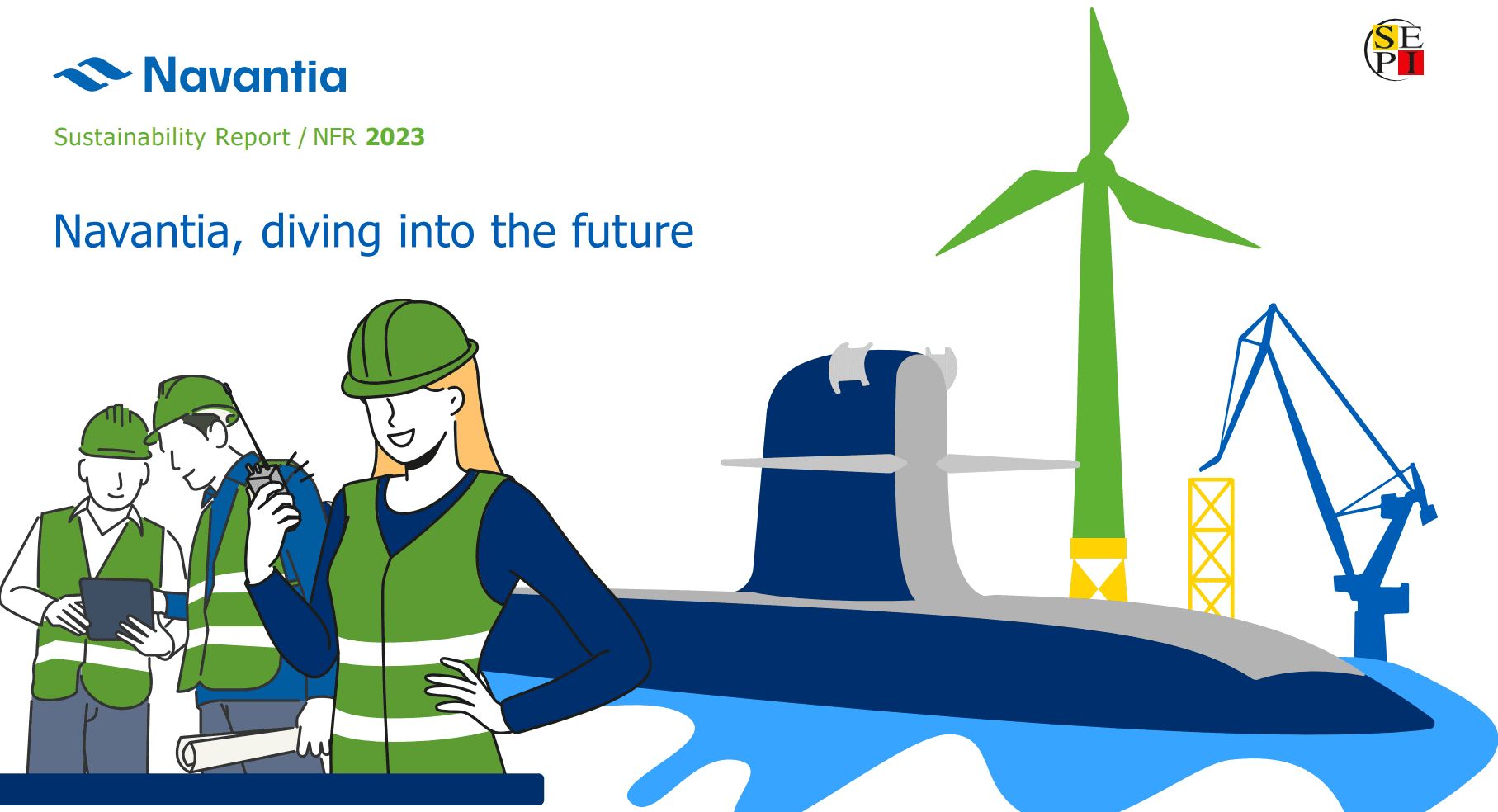

Coinciding with World Environment Day, Navantia has just published its Sustainability Report for the year 2023, in an effort of transparency and compliance with best practices as a factor of competitiveness increasingly demanded in numerous international tenders. The Report makes considerable progress towards the requirements imposed by the new Corporate Sustainability Reporting Directive (CSRD), which will come into force next year.
This Sustainability Report, verified without qualifications by Bureau Veritas, includes all the ESG (Environmental, Social and Governance) information, including all the non-financial aspects demanded by the company’s stakeholders and placing it in the top group of the most transparent public companies.
The report highlights Navantia’s role in the fight against climate change, with the actions being carried out to reduce and offset its carbon footprint. In 2023 our greenhouse emissions were reduced again, maintaining the trend started in 2018, which has allowed us to achieve the certification of emissions reduction from the Ministry of Ecological Transition and Demographic Challenge (MITERD).
In addition to reducing its emissions to meet its goal of achieving Net-Zero by 2040, Navantia offsets its emissions through the ‘Navantia Ecosystem Project’, and in 2023 the registration of the first ‘Navantia Forest’ project was formalised at MITERD, which was carried out in San Fernando. There are projects along the same lines in the areas surrounding all the company’s shipyards.
On the other hand, the Report reports on the continuous reductions in electricity and water consumption.
It also highlights the work carried out in environmental management and protection, in the fight against climate change, in the circular economy and eco-design, and in the protection of biodiversity.
In line with best practices, for the second year the report includes an analysis of Navantia’s activity in relation to the green taxonomy, the EU classification system that establishes a list of environmentally sustainable economic activities in accordance with the United Nations SDGs.
With regard to the social dimension, priority is given to people as the driving force for change, promoting the value of diversity, Navantia’s talent, work organisation and a safe and healthy working environment. It highlights that Navantia’s activity generated 24,500 jobs in the economy and more than 1,300 million euros of contribution to the GDP in 2023.
In addition, it is reported that efforts are being redoubled to be increasingly diverse through the rejuvenation of the workforce and that 30% of the positions of responsibility are occupied by women, a percentage that the Navantia Equality Commission continues to work to improve.
In 2023, there was no gender pay gap in Navantia, as the total wage difference between men and women in all categories and ages was 0.2%.
It is also evident that Navantia is firmly committed to stable employment, with 93.52% of its workforce employed on permanent contracts. It should also be noted that Navantia invests more than 229,000 hours in training for the entire workforce, with an annual investment of more than €8m.
In the area of governance, Navantia is implementing best practices with its good governance and compliance policies, and is increasingly promoting alliances with its stakeholders. It is a member of the United Nations Global Compact, the Biodiversity Foundation, Forética and collaborates with Universities and Technology Centres.
Finally, for the second year in a row, an in-depth analysis is made of our contribution to the United Nations Sustainable Development Goals (SDGs). In more than 18 pages it details how it contributes to the 17 SDGs and their 169 goals.
The report can be consulted in the Sustainability section of the Navantia website.














